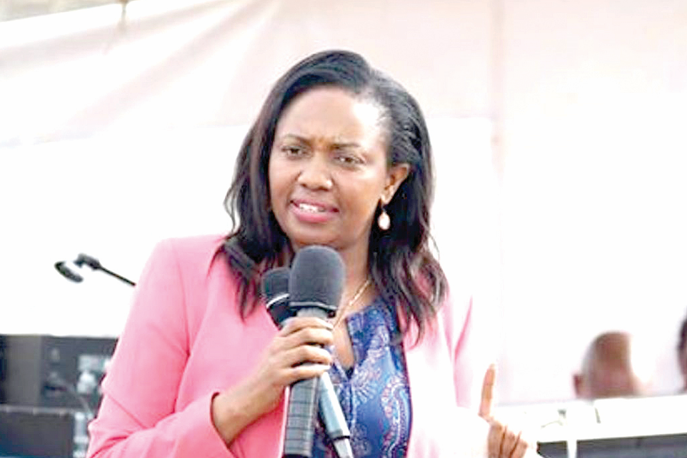Nairobi meeting to define Africa’s environment plan

African countries’ ministers on the environment are meeting in Nairobi to discuss critical environmental issues facing the continent amid the triple global crises of climate change, biodiversity loss and pollution.
Convened under the theme, ‘Four Decades of Environmental Action in Africa: Reflecting on the Past and Imagining the Future’, the 20th African Ministerial Conference on the Environment (AMCEN-20), which began on Monday, July 14, 2025, and concludes on Friday, July 18, 2025, is addressing these issues under a common agenda.
The session at the United Nations Environment Programme (UNEP) headquarters in Gigiri aims to strengthen collaboration among institutions and enhance the implementation of global and regional environmental frameworks to address environmental challenges facing the continent.
Bringing together ministers and experts, AMCEN-20 will discuss and provide policy guidance for the effective participation of Africa in upcoming key global environmental events, including the UN Climate Change Conference (COP 30) convened by the UN Framework Convention on Climate Change (UNFCCC) in Belém, Brazil.
AMCEN-20 will also discuss Africa’s participation at the Convention on International Trade in Endangered Species of Wild Fauna and Flora (CITES CoP 20), the Minamata Convention on Mercury (COP-6), the Ramsar Convention on Wetlands (Ramsar COP 15), the Montreal Protocol (MOP 37), and the seventh session of the UN Environment Assembly (UNEA-7).
Ministers and experts are also reviewing progress in the implementation of decisions adopted at AMCEN 18 and AMCEN 19, and identifying and agreeing on Africa’s environmental priorities for the period 2025-2027.
Taking stock
Marking the 40th anniversary of AMCEN, the session will feature a high-level special session on Friday, focused on AMCEN’s achievements over the last 40 years, and dialogues on key accelerators for achieving the 2030 Agenda for Sustainable Development and Africa’s Agenda 2063.
Established in 1985, AMCEN is Africa’s foremost ministerial-level body on environmental governance, providing political guidance and regional leadership to promote sound environmental management and sustainable development practices in all 54 member states.
AMCEN’s mandate is to champion environmental protection, promote sustainable development that meets basic human needs, advance social and economic progress at all levels, and support food security through sustainable agricultural practices.
Delegates are engaging in four policy dialogues on sustainable and climate-resilient climate financing and budgeting as a pathway to addressing climate change and environmental challenges in Africa and leveraging the G-20 to address Africa’s environmental challenges.
They are also discussing the role of sustainable digital technologies, artificial intelligence (AI), and early warning and assessments for environmental sustainability in Africa, and critical minerals and energy transition in Africa.
The meeting will deliver a political declaration and decisions, and policy messages related to Africa’s common positions for upcoming international environmental meetings on wetlands, plastic pollution, mercury, climate change, and the global environment.
Last September, policymakers and development partners from across the continent convened in Abidjan, Côte d’Ivoire, for the tenth session of AMCEN under the theme ‘Raising Africa’s Ambition to Reduce Land Degradation, Desertification, and Drought’, which drew attention to the urgent need to address land degradation across Africa.
Organised in partnership with the government of Côte d’Ivoire, the UN Economic Commission for Africa (ECA), African Union (AU) Commission, African Development Bank, UNEP, and UN Convention to Combat Desertification (UNCCD), the meeting catalysed collective action and elevated the political profile of land degradation, desertification, and drought in Africa.
With 65 per cent of Africa’s land degraded, impacting over 400 million people, the discussions in Abidjan were held at a critical juncture in Africa’s efforts to restore its land resources.
Globally, land degradation affects 3.2 billion people, with developing countries disproportionately bearing the burden.
In Africa alone, an estimated 4.4 million hectares of productive land are lost to desertification annually, reducing agricultural productivity and contributing to undernourishment for over 68 million people.
Desertification leads to the extinction of approximately 27,000 species each year and costs the global economy 10 per cent of its GDP, with Africa shouldering 22 per cent of the total cost of land degradation.
Global solutions
Cote d’Ivoire Prime Minister Robert Beugré Mambé told participants: “There is a disproportion that is very worrying.
We must be able to keep ourselves in the loop to provide answers to our concerns, with the global community, which is worried about the very negative impact of climate change on our economic, human and social activities.
Some examples show that climate change affects more than 100 million hectares of land every year”.
Among the solutions to fight against degradation of Africa’s land, he emphasised the need to adopt a circular economy to use the continent’s natural resources as little as possible and develop the ability to anticipate meteorological forecasts.
ECA Deputy Executive Secretary and Chief Economist Hanan Morsy said climate change, pollution and biodiversity loss are not just environmental issues, but economic and social challenges that threaten the very fabric of our societies, demanding immediate and united action.
“Climate change is costing African economies up to 15 per cent of GDP annually. Governments are diverting up to 9 per cent of their budgets to cope with extreme weather, while grappling with debt distress, facing difficult trade-offs between climate action and meeting critical development needs, such as health and education,” said Morsy.
“The challenges we face are immense, but so are the opportunities for Africa to lead with innovative, sustainable solutions. By leveraging our collective strengths and deepening our collaboration, we can protect our ecosystems, empower our communities, and drive sustainable development. This path forward will require commitment, both in resources, policy, and action.”
Climate finance will also feature at AMCEN-20 in Nairobi. African nations led the developing world in pushing for more money at last November’s UN climate summit (COP29) in Baku, Azerbaijan.
Negotiators from the 200 countries faced divisions pitting developing nations and wealthy governments after a draft deal proposing developed nations provide US$300 billion to poorer nations drew criticism from all sides.
Developing countries said the US$300 billion was too low as it fell far short of the US$1.3 trillion they need to cope with climate change.
The deal enraged African nations led by Kenya, Malawi and Uganda, which are disproportionately affected by the impacts of climate change it did little to cause.
Ali Mohamed, Kenya’s special envoy for climate change, who is also the chairman of the African Group of Negotiators, speaking on behalf of 50 African nations, said the proposed target was “totally inadequate and would lead to unacceptable loss of life in Africa and around the world.”
This view was echoed by the small island states, with Tina Stege, climate envoy for the extremely vulnerable Marshall Islands, calling it “shameful”.
“This package puts small island developing states and the least developed countries first on the chopping block. It is incomprehensible that, year after year, we bring our stories of climate impacts to these meetings and receive only sympathy. We are not here to tell stories. We are here to save our communities,” she added.
The heated reaction to the proposed target intensified the wrangles with Panama’s representative Carlos Monterrey Gomes, saying the figure was too low.
“I’m mad. It’s ridiculous, just ridiculous. It feels that the developed world wants the planet to burn.”











